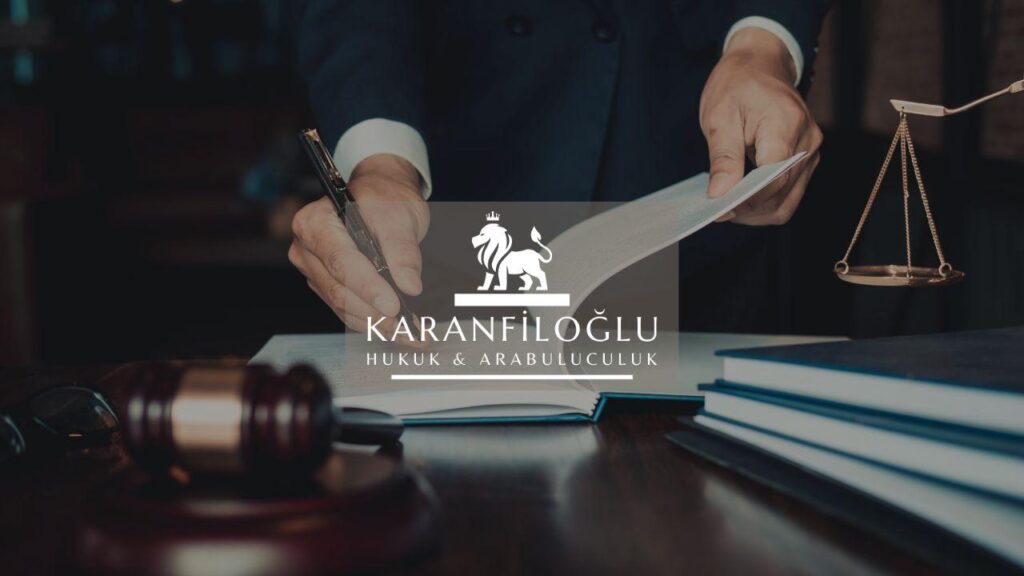Employment discrimination is a pressing issue that can significantly impact an individual’s professional and personal life. In Turkey, employees who face discrimination at work based on factors such as gender, race, religion, or disability have the right to seek legal redress under Turkish Labour Law No. 4857 and the Law on Human Rights and Equality Institution of Turkey No. 6701. The process to file an employment discrimination complaint involves several critical steps, including gathering evidence, filing a complaint with the relevant authorities, and potentially pursuing litigation. At Karanfiloglu Law Office, we specialize in guiding our clients through these complex procedures, ensuring that their rights are protected at every stage. Our experienced legal team is well-versed in both domestic laws and international regulations pertaining to workplace discrimination, providing comprehensive support tailored to each client’s unique situation. Whether you are an employee seeking justice or an employer aiming for compliance, we are here to assist you in navigating the legal landscape effectively.
Understanding Your Rights Under Turkish Labor Law
Understanding your rights under Turkish Labor Law is crucial when facing employment discrimination. According to Article 5 of Turkish Labour Law No. 4857, discrimination based on language, race, sex, political opinion, philosophical belief, religion, and similar reasons is prohibited. Additionally, Law No. 6701, which establishes the Human Rights and Equality Institution of Turkey, further emphasizes the protection of equality and the prohibition of discrimination. Under these laws, employees are entitled to equal treatment and can seek compensation in cases where their rights have been violated. By being aware of these legal provisions, employees can better recognize discriminatory practices and take appropriate legal action to safeguard their rights. At Karanfiloglu Law Office, we help clients understand these regulatory frameworks and their specific applicability to various workplace scenarios.
If an employee believes they have been subjected to discrimination, the first step is to gather comprehensive evidence to support their claim. Evidence can include written communications, witness statements, and any relevant documentation that shows discriminatory behavior or practices. According to Article 5 of Labor Law No. 4857, it is essential to demonstrate that the unequal treatment was based on a prohibited ground, such as gender or religion. Under Law No. 6701, the burden of proof may be shifted to the employer once the employee has established a prima facie case of discrimination, making it imperative to collect and present strong evidence. This initial step is fundamental in building a successful case, and at Karanfiloglu Law Office, we provide expert guidance on how to effectively gather and organize this evidence to strengthen your legal position.
Once sufficient evidence has been gathered, the next step is to file a formal complaint with the relevant authorities. In Turkey, employees can submit their complaints to the Human Rights and Equality Institution of Turkey, as mandated by Law No. 6701, or directly to the Labour Courts. The complaint should be detailed, including all evidence collected and a clear statement of the discriminatory acts experienced. It’s essential to adhere to any time limits for filing such complaints, typically within 30 days as stipulated by Turkish Labour Law No. 4857. Upon receiving the complaint, the relevant authority will conduct an investigation, which may include interviews and additional evidence collection. At Karanfiloglu Law Office, we assist our clients in meticulously preparing their complaints, ensuring all legal requirements are met and maximizing the chances of a favorable outcome.
Gathering Evidence and Documentation for Your Complaint
Gathering compelling evidence and documentation is a crucial first step in filing an employment discrimination complaint in Turkey. Under Turkish Labour Law No. 4857, specifically Article 5, employees must provide proof that discrimination occurred. This evidence can include written records, such as emails, performance reviews, and internal communications, which demonstrate unequal treatment. Additionally, witness testimonies from colleagues who have observed discriminatory actions can be invaluable. It is also advisable to document any relevant incidents in a detailed log, noting dates, times, and descriptions of the events. The Law on Human Rights and Equality Institution of Turkey No. 6701 provides further support by emphasizing the importance of credible evidence in discrimination cases. By compiling robust documentation, you strengthen the foundation of your complaint, ensuring that your claims are taken seriously by the authorities. At Karanfiloglu Law Office, we assist our clients in meticulously collecting and organizing the necessary evidence to build a strong case against workplace discrimination.
It’s equally important to understand the types of discriminatory actions that may justify filing a complaint. Discrimination can manifest in various forms, including hiring practices, promotions, salary inequity, and conditions of employment. For instance, if there is a pattern of promoting less qualified individuals over you due to your gender or ethnicity, this could serve as compelling evidence under Article 5 of the Turkish Labour Law No. 4857. Harassment or creating a hostile work environment based on protected characteristics are also grounds for a discrimination complaint. The Law on Human Rights and Equality Institution of Turkey No. 6701 helps clarify these circumstances by outlining discriminatory behaviors and providing a framework for identifying them. Understanding these forms of discrimination and documenting their occurrence meticulously can bolster your case significantly. At Karanfiloglu Law Office, our goal is to educate and empower our clients to recognize and respond to all forms of workplace discrimination effectively.
Once you have thoroughly gathered and documented evidence of discrimination, the next step is to formally file your complaint. This involves submitting your evidence and a detailed statement of your claims to the relevant authorities. Under the Law on Human Rights and Equality Institution of Turkey No. 6701, the complaint can be filed directly with the Human Rights and Equality Institution (TİHEK), which has the authority to investigate and resolve such cases. Alternatively, complaints may also be submitted to the Ministry of Labour and Social Security, which can conduct inspections and mediate disputes under the provisions of Turkish Labour Law No. 4857. It is essential to ensure that your complaint is precise, well-documented, and submitted within the statutory deadlines to avoid dismissal. At Karanfiloglu Law Office, we guide our clients through each step of this complex process, from the initial filing to any subsequent legal proceedings, ensuring that their case is presented effectively and their rights are upheld.
Navigating the Legal Process: Filing and Following Up on Your Case
Navigating the legal process of filing an employment discrimination complaint in Turkey begins with gathering substantial evidence to support your claim. This evidence can include documents, emails, witness statements, and any other relevant material that demonstrates discriminatory behavior. Under Turkish Labour Law No. 4857 and the Law on Human Rights and Equality Institution of Turkey No. 6701, you must submit a written complaint to your employer or the relevant authorities, detailing the discrimination faced. It is crucial to adhere to the specific timelines and procedural requirements outlined in these laws to ensure your complaint is valid and actionable. Once the complaint is filed, the Human Rights and Equality Institution of Turkey (HREI) will investigate the matter, and if necessary, forward it to the judiciary for further action. At Karanfiloglu Law Office, we are committed to helping you compile a compelling case and navigate the procedural intricacies efficiently.
Following the initial filing, the Human Rights and Equality Institution of Turkey (HREI) will conduct a thorough investigation into your complaint, as mandated by Article 17 of Law No. 6701. The HREI will review all submitted evidence, potentially soliciting additional information or documentation from both parties involved. If the HREI determines that there is sufficient cause, it may attempt to mediate a resolution between the employee and employer. However, if mediation fails or is deemed inappropriate, the case may be escalated to the judiciary. This could involve a formal lawsuit in labor courts, where additional legal documentation and representation become crucial. Article 5 of the Turkish Labour Law No. 4857, which prohibits workplace discrimination, will also serve as a cornerstone of your case. At Karanfiloglu Law Office, our experienced lawyers assist clients in navigating these procedures, ensuring compliance with all legal requirements while building a robust argument to support their claims.
Successfully navigating the final stages of an employment discrimination case in Turkey often requires comprehensive legal representation. As your case moves from investigation to potential litigation, adhering to procedural nuances such as those specified in Article 20 of the Turkish Labour Law No. 4857 becomes critical. This article outlines the obligation of employers to prove that no discrimination occurred once a prima facie case has been established by the employee. During court proceedings, presenting a well-organized, evidence-backed case is imperative to achieve a favorable outcome. The court may also award compensation for emotional distress, lost wages, and other damages under Article 21 of the Labour Law. At Karanfiloglu Law Office, we meticulously prepare for every stage of litigation, offering unparalleled support to ensure that your rights are protected and that you receive the justice you deserve. Whether negotiating settlements or representing clients in court, our commitment remains unwavering in seeing that your case is resolved equitably.
Disclaimer: This article is for general informational purposes only and you are strongly advised to consult a legal professional to evaluate your personal situation. No liability is accepted that may arise from the use of the information in this article.







